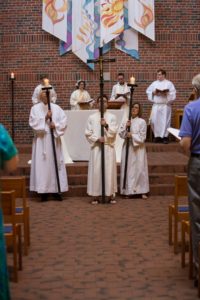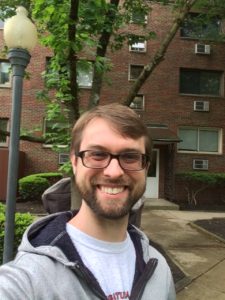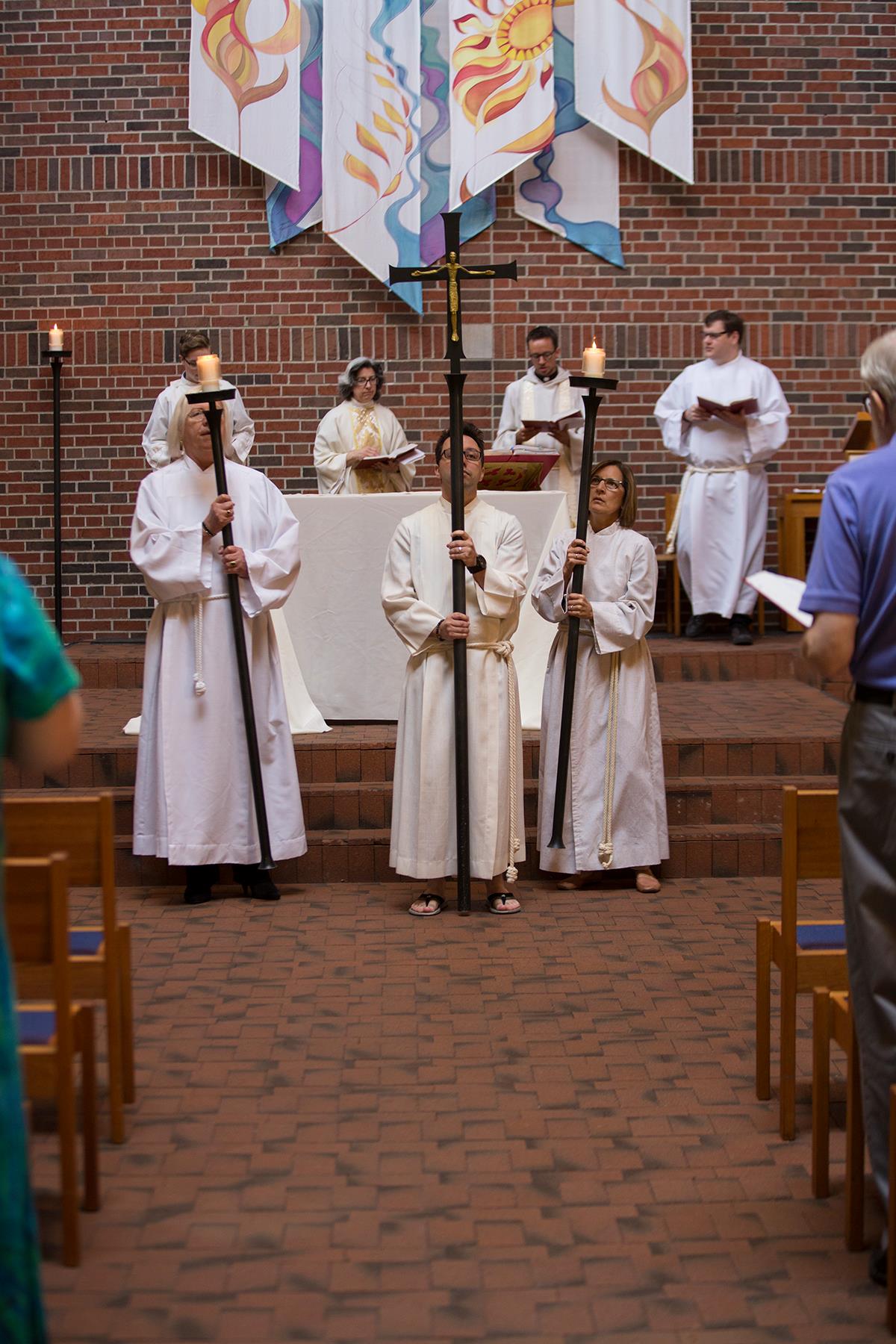Guest blog by Jeffery Ogonowski
Proclaim member and Master of Divinity student at Trinity Lutheran Seminary
 The Trinity Lutheran Seminary (TLS) community has experienced steady grief since the announcement of its reunion with Capital University. Capital and TLS were one campus for many years, but over the last 38, the two have grown apart as independent institutions. This reunion will reduce costs and broaden the portfolio of Capital University, but sadness and anger cloud TLS’s students by the uncertain future of the seminary. The community longs for comfort and safety of financial stability, yet it wishes to maintain its autonomous validity. Amidst this challenging climate, TLS welcomed Asher O’Callaghan, program director for ELM, to campus and celebrated the progress of the LGBTQ+ community this past week.
The Trinity Lutheran Seminary (TLS) community has experienced steady grief since the announcement of its reunion with Capital University. Capital and TLS were one campus for many years, but over the last 38, the two have grown apart as independent institutions. This reunion will reduce costs and broaden the portfolio of Capital University, but sadness and anger cloud TLS’s students by the uncertain future of the seminary. The community longs for comfort and safety of financial stability, yet it wishes to maintain its autonomous validity. Amidst this challenging climate, TLS welcomed Asher O’Callaghan, program director for ELM, to campus and celebrated the progress of the LGBTQ+ community this past week.
On May 2, 2016, the TLS board approved the designation to be an RIC seminary. Though only for a short time, TLS publicly proclaims itself as a safe and accepting campus for the LGBTQ+ community. This past week the campus celebrated the path of the students who strove for acceptance. The Tuesday morning litany created space for Margie Farnham to testify her pursuit of LGBTQ+ acceptance and safety on the campus. Margie was a student at TLS in the early 90s and joined the staff in 2008. In her testimony, she explored the grief of the cross, reflecting on her faith for a day when LGBTQ+ students could walk the TLS campus in celebration of their gifts for ministry.
Despite the small student enrollment, the LGBTQ+ population is growing at TLS. Among the 1st year students, approximately 19% represent the LGBTQ+ community. However, at the end of June, the majority of the TLS’s staff will lose their jobs, leaving no representation of LGBTQ+ church leadership on the seminary campus. Despite the struggle to gain acceptance for students, the climate on campus continues to need advocates like Margie. This week was for celebration, but as TLS forms leaders for Christ’s church at work in the world, the challenge of acceptance remains.
It is easy to dwell on the fear of the unknown future, but African Theologian John S. Mbiti describes a different understanding of time’s movement. He writes:
In traditional African thought, there is no concept of history moving ‘forward’ towards a future climax, or towards an end of the world. Since the future does not exist beyond a few months, the future cannot be expected to usher in a golden age, or a radically different state of affairs from what is in the Sasa [now] and the Zamani [past].(1)
Despite the worry for the coming years of the transition into a unified campus, stories like Margie’s provide hope for the ‘now.’ Stories like hers help reverse the movement of time and dispel the fear of the unknown future.
(1) John S. Mbiti, African Religions and Philosophy (London: Heinemann Educational Books Ltd, 1977), 23.
Jeff Ogonowski is in his first year of seminary at Trinity Lutheran Seminary in Columbus, Ohio. He worked in music retail for five years and has taught piano for the last 10 years in his hometown of New Bern, North Carolina. He enjoys theological discourse and craft beer.


